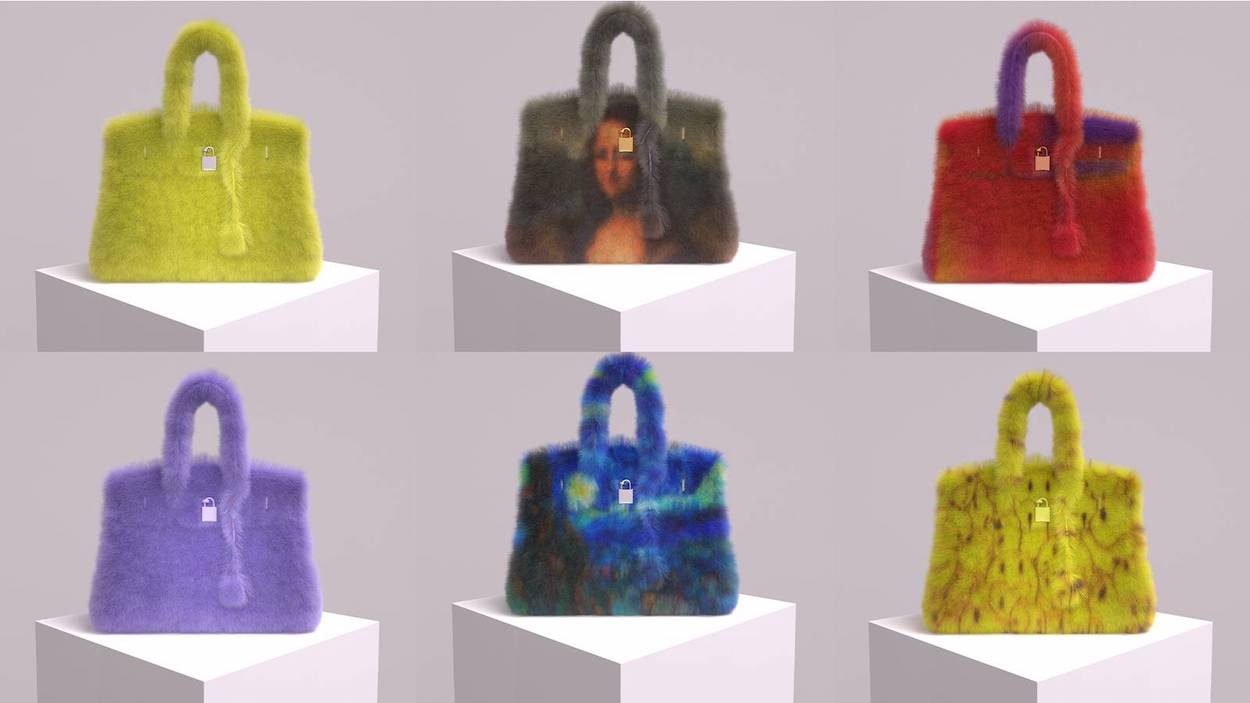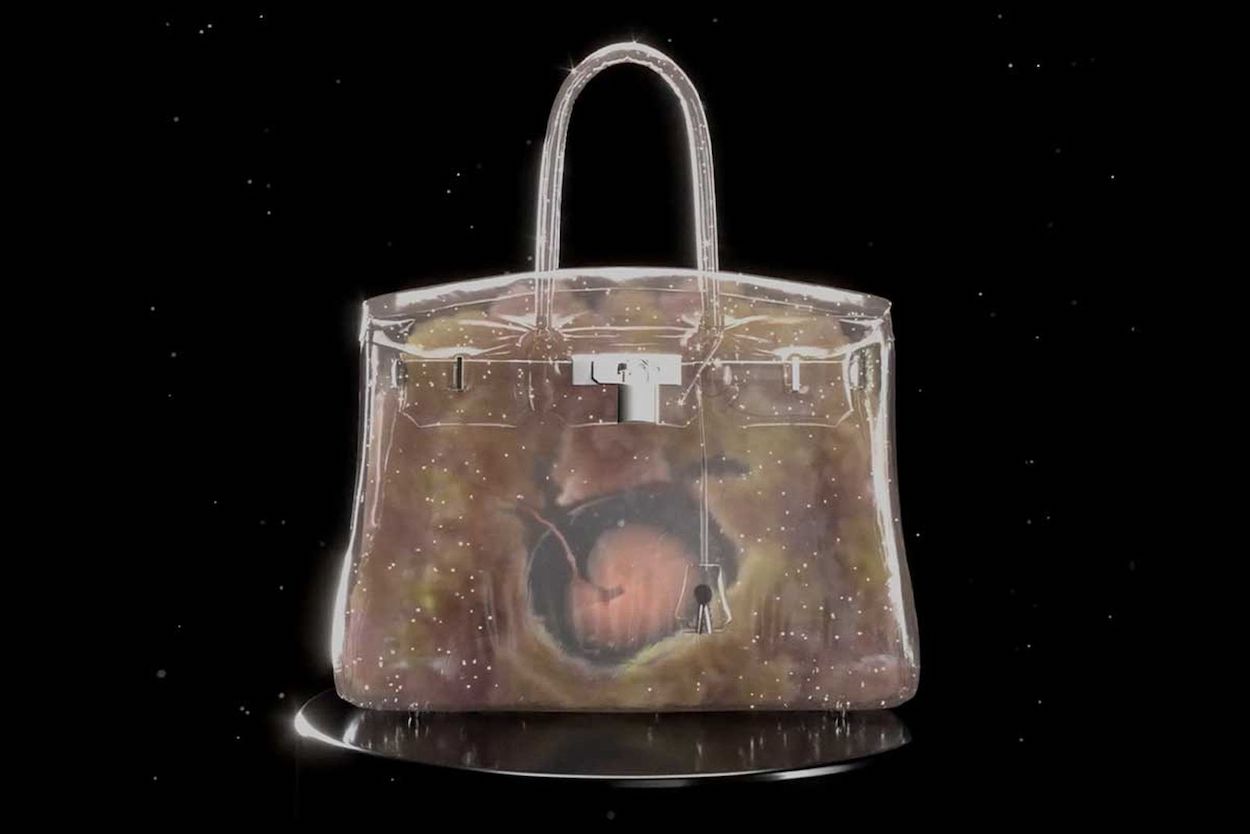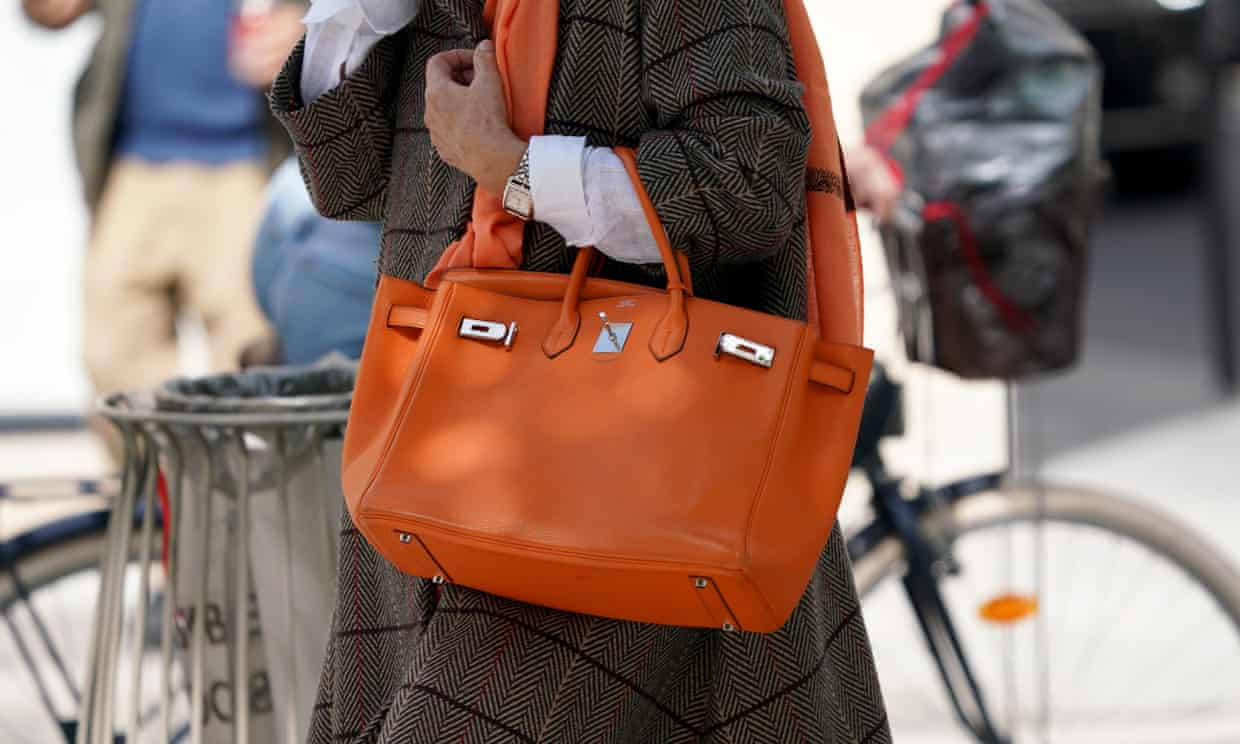In the rarefied world of fashion, the Hermès Birkin bag is an extraordinarily rarefied product—and at one point could have reigned as the world’s rarest bag. Named after the actress Jane Birkin, the handbags are meticulously hand-made by the luxury French label’s specialized artisans over an agonizing 18-hour-long process. The ten-figure totes are exceptionally hard to come by and famously have years-long wait lists, sometimes fetching nearly 23 times their retail value on the secondary market.
So Hermès executives watched in horror as unauthorized digital versions of the coveted bag made the rounds on social media after 2021’s well-documented rise of NFTs. First up was the creepy “Baby Birkin,” a 3D animation of a translucent handbag pregnant with a fetus created by artist Eric Ramirez and streetwear entrepreneur Mason Rothschild. The latter soon introduced 100 additional MetaBirkin NFTs—some equipped with mammoth tusks, others swaddled in shaggy Grinch fur and emblazoned with smiley emojis—priced at $450 each.
Hermès quickly sued Rothschild, arguing that MetaBirkins were diluting the French maison’s trademark, causing confusion in the marketplace, and profiting off the appeal of the Hermès brand. Rothschild rebuffed that his MetaBirkins are original artworks—in this case, digital assets sold on the blockchain—and shielded by the First Amendment. “This is a battle for ownership of luxury in the metaverse,” Susan Scafidi, academic director of the Fashion Law Institute at Fordham University, told Business of Fashion in an article called “Why Hermès Probably Can’t Stop the MetaBirkin.”
It turns out Hermès can. A nine-person federal jury determined yesterday that Rothschild infringed on the label’s trademark rights and awarded Hermès $133,000 in damages. The case concluded that his NFTs were not protected speech, a ruling likely to influence how digital artists use trademarks in their work. The closely watched trial is the first to examine how NFTs can be viewed through the lens of intellectual property law, and its findings are expected to guide how companies and creators approach art and branding in the virtual world.
That’s bad news for the embattled NFT market, which at its height surpassed $40 billion in value yet plummeted by 97 percent in the past year, illustrating the financial boom-and-bust cycle that has come to define cryptocurrencies. The NFT space often tries to align itself with the creator economy, but the reality now seems murkier—and likely to steer how legal experts approach trademark infringement cases in the future. Yuga Labs, the creator of Bored Ape Yacht Club, recently filed an infringement lawsuit against the artist Ryder Ripps, who claimed the charges attacked his rights to free speech.
“[This] will be a very meaningful case for the fashion industry,” says Michelle Cooke, a trademark lawyer uninvolved in the case, who predicted the matter will be debated for years to come. “Their ability to control their brands in these digital spaces as much as they do in the real world will have significant implications about how much money they put into these new environments and how they enforce and protect their rights.”
Some fashion industry insiders found Hermès’s preoccupation with the litigation puzzling, especially when other third-party projects involving the Birkin haven’t set off any alarms. But the label argued that offering virtual goods falls within its “natural zone of expansion,” especially as rival fashion brands like Gucci, Nike, and Balenciaga continue to grow their metaverse footprint.



